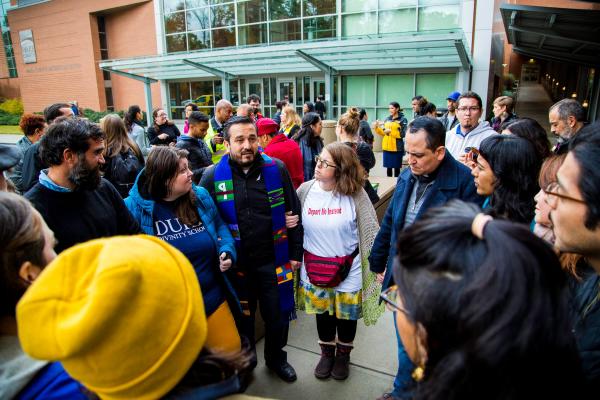Dec 3, 2018
The space of Samuel Oliver-Bruno’s “home” while in sanctuary is filled with signs he thought he’d return from a biometrics appointment at U.S. Customs and Immigration Services (USCIS) in Morrisville, N.C., scheduled at the immigration control office’s request. His work on construction projects around the basement at the CityWell church in Durham, N.C., seems stalled in time. Painting supplies, clothes, other personal items stilled exactly as he left them, where he was working diligently just days before his life was altered irrevocably. A prayer room he helped to build is silent.
Read the Full Article

Already a subscriber? Login
